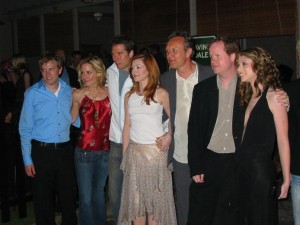Phraseology: Where Do They Come From?
Have you ever said a phrase and then spent half an hour pondering where it came from? No? Oh. Must be just us then. But either way, we’re sure you’ll agree, many of the sayings we take for granted in our everyday day speech are meaningless without context. Spare a thought for those learning English a second language as you look through our top ten favorite sayings and where they come from.
1. Wait for the other shoe to drop
This one means waiting for the inevitable to happen, which tends to be a bad thing. Tenement housing typical of New York and other major cities during the manufacturing boom of the late nineteenth/early twentieth century was renowned for poor upkeep and paper thin walls. So paper thin that you could hear your neighbour drop their shoes after a long day at work. One would fall and you would wait for the inevitable thud of the other. Not that that in itself is a bad thing per se. Otherwise you’d be worried they had gone to bed in their shoes, wouldn’t you?
We like it because…
Okay, so maybe Monica and Rachel never actually heard Ugly Naked Guy drop a shoe (or any other item of clothing) but still, this is where our thoughts wandered. Any connection to Friends can only be a good thing.
Chandler: Ew, ew, ew, ew ew ew ew ew. Ugly Naked Guy got a Thighmaster.
2. Bad hair day
We’ve all had them. Some of us have never not had them. This one is pretty straightforward, meaning ‘today my hair is uncontrollable and doing its own thing’. And okay, perhaps this saying leans more towards the whole day being a write-off overall, rather than just because you have hair all over your face, and at odd angles, but we love it either way.
Annoyingly, no bad hair here at all…
 Photo via Wikipedia / Wikipedia
Photo via Wikipedia / Wikipedia
We like it because...
Imagine our fangirl/boy delight when we realised this phrase first took prominence in the film Buffy The Vampire Slayer back in 1992.
“I’m fine but you’re obviously having a bad hair day!”
3. Jump on the bandwagon
Doing what all the cool kids do or agreeing with something ‘because everyone else thinks this’, that’s the gist of the bandwagon jumping. Now there’s good bandwagons (environmental movements) and bad ones (every retailer on Black Friday), but what if we told you the origins of this phrase go back to travelling circuses? Circuses would, in the late 19th century, pass through towns and attract crowds with their bandwagons brightly decorated and a parade to march alongside. This idea was taken on by politicians in their political campaigns, where the saying became synonymous with showing allegiance to a political party.
We’ll carry on…
We like it because…
REM sang about a bandwagon first. But when we hear this phrase, the first song that pops into our little emo hearts is My Chemical Romance’s Welcome To The Black Parade.
4. All singing all dancing
The first musical, Broadway Melody (1929) used the phrase all talking all singing all dancing on its advertising posters. This was a true reflection of the film that had everything, and the phrase has come to mean ‘full of vitality’ or more recently, ‘full of features’. Like the ever new edition of the iPhone with all the things you never knew you needed for example.
 Photo via Flickr / Flickr
Photo via Flickr / Flickr
We like it because…
It makes us think of the Big Bang Theory flashmob.
5. Back seat driver
To quote the Bismarck Tribune (1921): "A back-seat driver is the pest who sits on the rear cushions of a motor car and tells the driver what to do. He issues a lot of instructions, gives a lot of advice, offers no end of criticism. And doesn't do a bit of work." We don’t just have them in our cars; our lives are littered with those who know best and correct our every move. It makes us very angry.
We like it because…
Side-seat driving is just as bad as backseat driving. Ask Captain Stephen Hiller in Independence Day.
David Levinson: We're hit! We took a hit!
Captain Steven Hiller: [yelling] We're not hit! We're not hit! Stop side-seat driving!
David Levinson: [trying to make a break for the exit] Left! Left! Tunnel! Tunnel! Exit! Exit! Left!
Captain Steven Hiller: Where the hell do you think I'm going?
David Levinson: Ok, ok. We're we're we're uh...[indicating they were communicating]
David Levinson: Uh oh, they're closing up on us... they're closing...
Captain Steven Hiller: Shut up, shut up, shut up!
David Levinson: Must go faster. Must go faster! Must go faster! Go, go, go, go!
[escapes from the alien ship]
David Levinson: [screaming]
Captain Steven Hiller: Aaaaaaahhhhhhhhh!
Captain Steven Hiller: Oh! Elvis has left the building!
David Levinson: [in Elvis voice] Oh, thank you very much.
[in his own voice]
David Levinson: Oh, I love you man!
6. Blast from the past
The exact first user of this phrase is not known, but a likely bet is Jerry Blavat, a DJ who had a preference for playing ‘older music’ and introducing them as ‘blasts from the past’. It’s now used to describe anything that suddenly reminds us of a different time in our lives, from childhood to awkward office Christmas parties.
We like it because…
When we see pictures of Joshua Jackson we still can’t help but see Pacey Witter, and Dawson’s Creek is one hell of a blast from the past.
...Must Come To An End (Final episode, 2003)
Joey: You know what, for the record, I don't want to be let off the hook. Because everything I have done has led me here, right now, and the last thing I want is to be let off somebody's hook.
Pacey: Don't miss my point here...
Joey: And don't miss mine. Pacey, I love you. You know that. And it's very real. It's so real that it's kept me moving, mostly running from it, never ready for it. And I love Dawson. He's my soul mate. He's tied to my childhood, and it's a love that is pure and eternally innocent. I can't be let off the hook because I just might get the notion that it's OK to keep running.
7. Rise and shine
Although one of the earliest uses is in the bible (Isaiah 60:1: Arise, shine; for thy light is come, and the glory of the LORD is risen upon thee.), in its full form, the phrase wakey, wakey, rise and shine was used to rouse British soldiers. It was also used as a wake up call at Butlins. Make of that what you will. Essentially, it means get up and out of bed.
We like it because...
Dean Winchester said it. Once. Okay, so we’re angling for including Supernatural. We make no apologies.
Mystery Spot (episode 11, season 3, 2008)
Dean: Rise and shine, Sammy!
8. Riding shotgun
There’s a sort of urban legend that this phrase originated from the wild west and a person riding with a gun alongside the driver for safety. In Stagecoach(1939) George Bancroft’s Marshal Curly Wilcox rode shotgun as protection from the Apaches. Early USA stage lines were often guarded in the very late 1800s, and shotgun messengers were used to guard both stagecoaches and trains in the late 19th and early 20th centuries. Now, we take it to mean riding in the passenger seat next to the driver.
We like it because…
We’re stretching our tenuous link thing to the limit. But there’s a Breaking Bad episode called Shotgun.
Shotgun (season 4, episode 5, 2011)
Mike Ehrmantraut: You - are not the guy. You're not capable of being the guy. I had a guy, but now I don't. You - are not the guy.
9. Talk to the hand
Martin Lawrence made this phrase popular in his sitcom Martin(1992). It became common in use in the mid 1990s as a way to say shut up, I’m not listening to you. In fact, accompanied with the ‘hand in your face’ gesture, this phrase annoyed many a parent and teacher for several years.
Photo via Flickr / Flickr
We like it because…
The Terminator says it not once, but twice.
The Terminator (1984)
Terminator: Take off your clothes.
Male Stripper: Patience, honey.
[the T-101 steps up onto the stage]
Male Stripper: Whoa, bitch. Wait your turn.
Terminator: Your clothes.
Male Stripper: Talk to the hand.
[the T-101 grabs his hand and speaks to it]
Terminator: Now.
Terminator 3: Rise Of The Machines (2003)
Gas Station Cashier: Hey are you gonna pay for that?
[the Terminator looks at him puts his hand up]
Terminator: Talk to the hand.
10. Pipe dream
The use of this phrase to mean something whimsical or an unattainable dream seems to originate from Chicago, appearing first in The Chicago Daily Tribune in 1890: "It [aerial navigation] has been regarded as a pipe-dream for a good many years." There are various links to pipe dreams being those derived from opiate use, and the Fort Wayne Gazette in 1895 referred to goings on in Chicago as the pipe dream[s] of an opium devotee.
We like it because…
Chicago makes us think of ER and that makes us very happy indeed. But the phrase itself puts Heaven Is A Halfpipe in our heads, so we’ll go away now and sing that to ourselves.
A word of advice...
There can never be enough sources from which to learn when you’re studying a new language, and TV and films provide an incredibly versatile range. If you’re thinking of learning a language yourself, why not contact us and see what we have on offer to help you get your language knowledge down pat.



